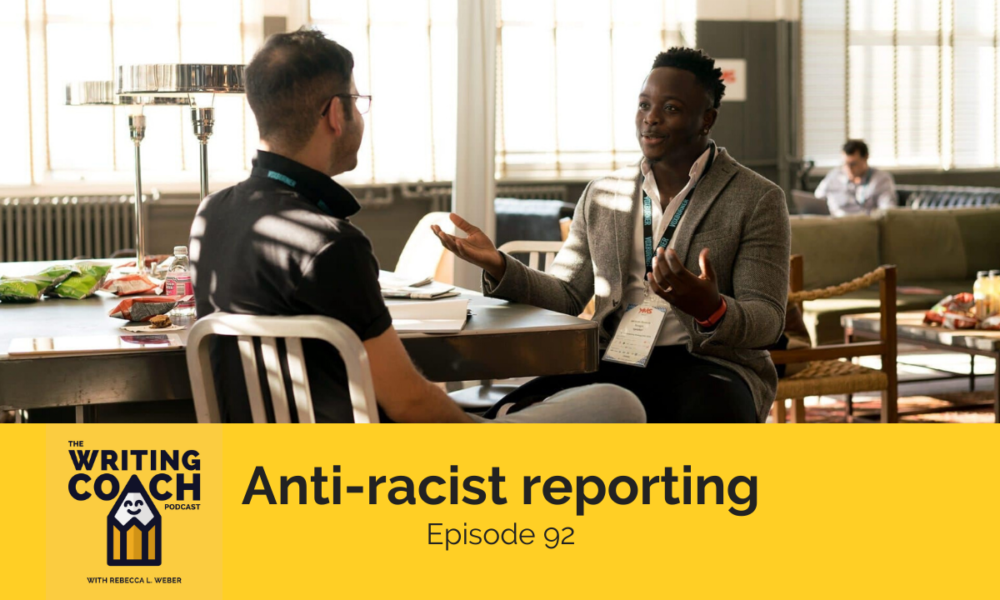The Writing Coach Podcast 92: Anti-racist reporting

WCP92 Anti-racist reporting
Black lives matter, today and every day. This is not always reflected in the media. Today we look at how an anti-racist approach to reporting helps us get closer to the real truth of what is happening in the stories you cover.
Black lives matter, today and every day. This is not always reflected in the media.
Today we look at how an anti-racist approach to reporting helps us get closer to the real truth of what is happening in the stories you cover. An anti-racist approach works both in stories that explicitly cover racism, as well as so-called softer stories where you may not have initially identified a racial angle. This process will require you to confront biases in society as well as within yourself.
In No Name in the Street, James Baldwin wrote, “Well, if one really wishes to know how justice is administered in a country, one does not question the policemen, the lawyers, the judges, or the protected members of the middle class. One goes to the unprotected—those, precisely, who need the law’s protection most!—and listens to their testimony.”
Listening is the foundation of good reporting, and anti-racist journalism that challenges the status quo.
Get quiet enough in your own head to listen to your own responses to what’s happening. Ask yourself how you’ve chosen the people you’re interviewing (see Baldwin above if you don’t like your answers). Listen closely to what the people you’re talking to have to say.
MENTIONED ON THIS EPISODE
Ramaphosa calls 11 lockdown deaths and 230,000 arrests an act of ‘over-enthusiasm’
‘Unarmed Black Man’ doesn’t mean what you think it means
Erin Brown on Instagram @ecce_b
Apply to work with me: rebeccalweber.com/coach

What should you include in a pitch to an editor?
Check out my blueprint for writing queries that editors find irresistible. Click here to download a copy of the free eguide, “5 Proven Steps to Writing Queries that Sell.”

 Download a free copy of “5 Proven Steps to Writing Queries that Sell.” I hate spam and will never share your info.
Download a free copy of “5 Proven Steps to Writing Queries that Sell.” I hate spam and will never share your info.